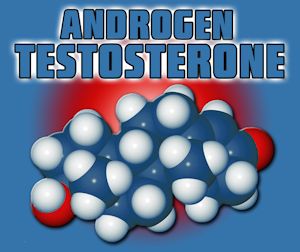Introduction
Testosterone Cypionate, a commonly prescribed testosterone replacement therapy, has been a subject of interest in the medical community, particularly in its potential effects on mental health. This article delves into the relationship between Testosterone Cypionate and the management of depression and anxiety in American males diagnosed with hypogonadism. By examining recent studies and clinical data, we aim to provide a comprehensive overview of how this therapy might influence mental well-being in this specific demographic.
Understanding Hypogonadism and Its Mental Health Implications
Hypogonadism, characterized by the body's inability to produce sufficient testosterone, can lead to a myriad of symptoms including fatigue, decreased libido, and mood disturbances. In American males, this condition is not uncommon and can significantly impact their quality of life. Depression and anxiety are among the psychological symptoms that can accompany low testosterone levels, making the management of hypogonadism crucial not only for physical health but also for mental well-being.
The Role of Testosterone Cypionate in Hormone Replacement Therapy
Testosterone Cypionate is administered as an intramuscular injection and is designed to mimic the body's natural testosterone production. It is favored in clinical settings due to its long-acting nature, which allows for less frequent dosing. The primary goal of using Testosterone Cypionate is to restore testosterone levels to a normal range, thereby alleviating the symptoms associated with hypogonadism.
Impact on Depression
Several studies have investigated the effects of testosterone replacement therapy on depression in men with hypogonadism. A notable study published in the Journal of Clinical Endocrinology & Metabolism found that men who received Testosterone Cypionate reported significant improvements in depressive symptoms compared to those who received a placebo. The mechanism behind this improvement may be linked to testosterone's role in neurotransmitter regulation, particularly serotonin and dopamine, which are crucial in mood regulation.
Impact on Anxiety
Anxiety is another common issue among men with hypogonadism, and the potential benefits of Testosterone Cypionate in this area have also been explored. Research indicates that testosterone therapy can lead to a reduction in anxiety levels. A study in the International Journal of Impotence Research showed that after six months of testosterone therapy, participants experienced a decrease in anxiety scores. This suggests that normalizing testosterone levels can have a stabilizing effect on the nervous system, potentially reducing anxiety symptoms.
Clinical Considerations and Patient Outcomes
When considering Testosterone Cypionate for the treatment of hypogonadism, healthcare providers must weigh the potential benefits against the risks. While the therapy can improve mental health outcomes, it is essential to monitor patients for side effects such as increased red blood cell count, sleep apnea, and prostate issues. Regular follow-ups and blood tests are necessary to ensure the therapy is both safe and effective.
Patient Experiences and Testimonials
Anecdotal evidence from patients who have undergone testosterone replacement therapy often highlights improvements in mood and overall mental health. Many American males report feeling more energetic, less irritable, and more engaged in their daily activities after starting treatment. These personal accounts add a valuable perspective to the clinical data, underscoring the potential life-changing benefits of Testosterone Cypionate.
Conclusion
The relationship between Testosterone Cypionate and mental health in American males with hypogonadism is a promising area of research. While more studies are needed to fully understand the long-term effects, current evidence suggests that testosterone replacement therapy can play a significant role in managing depression and anxiety. As we continue to explore this link, it is crucial for healthcare providers to consider the holistic impact of hypogonadism treatment on their patients' lives, ensuring that both physical and mental health needs are met.
In summary, Testosterone Cypionate offers a beacon of hope for American males struggling with the psychological burdens of hypogonadism, potentially improving their quality of life through enhanced mental well-being.
Contact Us Today For A Free Consultation

- Testosterone Cypionate: Benefits, Risks, and Management for Aging American Men [Last Updated On: March 12th, 2025] [Originally Added On: March 12th, 2025]
- Testosterone Cypionate: Benefits, Risks, and Long-Term Health Impacts on American Men [Last Updated On: March 17th, 2025] [Originally Added On: March 17th, 2025]
- Testosterone Cypionate: Overcoming Stigma and Enhancing Men's Health in America [Last Updated On: March 17th, 2025] [Originally Added On: March 17th, 2025]
- Testosterone Cypionate Enhances Sleep Quality in American Males Undergoing TRT [Last Updated On: March 18th, 2025] [Originally Added On: March 18th, 2025]
- Testosterone Cypionate: Benefits, Risks, and Prostate Health Management in American Men [Last Updated On: March 18th, 2025] [Originally Added On: March 18th, 2025]
- Navigating Insurance Coverage for Testosterone Cypionate Therapy: A Guide for American Males [Last Updated On: March 19th, 2025] [Originally Added On: March 19th, 2025]
- Minimizing Side Effects of Testosterone Cypionate: A Holistic Approach for American Men [Last Updated On: March 19th, 2025] [Originally Added On: March 19th, 2025]
- Testosterone Cypionate Therapy: Costs, Insurance, and Financial Planning for American Men [Last Updated On: March 19th, 2025] [Originally Added On: March 19th, 2025]
- Testosterone Cypionate: Managing Chronic Conditions in American Men [Last Updated On: March 20th, 2025] [Originally Added On: March 20th, 2025]
- Testosterone Cypionate's Impact on Mental Clarity in American Men: Experiences and Insights [Last Updated On: March 20th, 2025] [Originally Added On: March 20th, 2025]
- Testosterone Cypionate Injection Guide for American Males: Safe Administration and Care [Last Updated On: March 20th, 2025] [Originally Added On: March 20th, 2025]
- Testosterone Cypionate: Enhancing Libido in American Males - Benefits and Considerations [Last Updated On: March 21st, 2025] [Originally Added On: March 21st, 2025]
- Testosterone Cypionate's Role in Weight Management for American Men: Benefits and Risks [Last Updated On: March 22nd, 2025] [Originally Added On: March 22nd, 2025]
- Testosterone Cypionate: Dispelling Myths and Providing Facts for Informed Use [Last Updated On: March 22nd, 2025] [Originally Added On: March 22nd, 2025]
- Testosterone Cypionate's Impact on Joint Health in American Men: Benefits and Risks [Last Updated On: March 22nd, 2025] [Originally Added On: March 22nd, 2025]
- Testosterone Cypionate and Hair Loss: Mechanisms, Studies, and Management Strategies [Last Updated On: March 23rd, 2025] [Originally Added On: March 23rd, 2025]
- Testosterone Cypionate's Impact on Cholesterol Levels in American Males: A Comprehensive Review [Last Updated On: March 23rd, 2025] [Originally Added On: March 23rd, 2025]
- Testosterone Cypionate Guide: Benefits, Risks, and Safe Usage for American Men [Last Updated On: March 24th, 2025] [Originally Added On: March 24th, 2025]
- Testosterone Cypionate: Essential Hormone Therapy for Transgender Men's Gender Affirmation [Last Updated On: March 24th, 2025] [Originally Added On: March 24th, 2025]
- Testosterone Cypionate's Cardiovascular Impact on American Men: Benefits and Risks [Last Updated On: March 24th, 2025] [Originally Added On: March 24th, 2025]
- Testosterone Cypionate: Enhancing Body Composition in American Men - Benefits and Risks [Last Updated On: March 24th, 2025] [Originally Added On: March 24th, 2025]
- Testosterone Cypionate: Enhancing Energy in American Men with Low Testosterone [Last Updated On: March 24th, 2025] [Originally Added On: March 24th, 2025]
- Testosterone Cypionate: A Promising Aid in Managing Diabetes in American Males [Last Updated On: March 24th, 2025] [Originally Added On: March 24th, 2025]
- Testosterone Cypionate: Safety, Benefits, and Monitoring for American Males [Last Updated On: March 24th, 2025] [Originally Added On: March 24th, 2025]
- Testosterone Cypionate's Impact on Liver Function in American Males: Risks and Monitoring [Last Updated On: March 24th, 2025] [Originally Added On: March 24th, 2025]
- Testosterone Cypionate's Impact on Digestive Health in American Men: A Comprehensive Analysis [Last Updated On: March 25th, 2025] [Originally Added On: March 25th, 2025]
- Testosterone Cypionate: A Novel Approach to Managing Allergies in American Males [Last Updated On: March 25th, 2025] [Originally Added On: March 25th, 2025]
- Testosterone Cypionate's Impact on Cognitive Function in American Men: A Comprehensive Overview [Last Updated On: March 25th, 2025] [Originally Added On: March 25th, 2025]
- Testosterone Cypionate: Effects on Skin Health and Management Strategies for American Men [Last Updated On: March 25th, 2025] [Originally Added On: March 25th, 2025]
- Testosterone Cypionate's Impact on Kidney Function in American Men: Risks and Monitoring [Last Updated On: March 25th, 2025] [Originally Added On: March 25th, 2025]
- Testosterone Cypionate's Impact on Blood Pressure in American Men: A Comprehensive Analysis [Last Updated On: March 25th, 2025] [Originally Added On: March 25th, 2025]
- Testosterone Cypionate's Impact on Red Blood Cell Production in American Men [Last Updated On: March 25th, 2025] [Originally Added On: March 25th, 2025]
- Testosterone Cypionate Therapy: Monitoring and Optimizing Levels in American Men [Last Updated On: March 25th, 2025] [Originally Added On: March 25th, 2025]
- Testosterone Cypionate's Impact on Emotional Well-being in American Males: Benefits and Risks [Last Updated On: March 25th, 2025] [Originally Added On: March 25th, 2025]
- Testosterone Cypionate: Legal Status and Compliance for American Males [Last Updated On: March 25th, 2025] [Originally Added On: March 25th, 2025]
- Testosterone Cypionate: A Promising Treatment for Chronic Fatigue in American Males [Last Updated On: March 26th, 2025] [Originally Added On: March 26th, 2025]
- Testosterone Cypionate: A Promising Treatment for Osteoporosis in Aging American Males [Last Updated On: March 26th, 2025] [Originally Added On: March 26th, 2025]
- Testosterone Cypionate's Impact on Vision Health: Benefits and Risks for American Males [Last Updated On: March 26th, 2025] [Originally Added On: March 26th, 2025]
- Testosterone Cypionate's Impact on Thyroid Function in American Males: A Review [Last Updated On: March 26th, 2025] [Originally Added On: March 26th, 2025]
- Testosterone Cypionate's Impact on Mental Health in American Men: Benefits and Risks [Last Updated On: March 26th, 2025] [Originally Added On: March 26th, 2025]
- Testosterone Cypionate: A Promising Treatment for Depression in American Males [Last Updated On: March 26th, 2025] [Originally Added On: March 26th, 2025]
- Testosterone Cypionate: Enhancing Injury Recovery in American Males [Last Updated On: March 27th, 2025] [Originally Added On: March 27th, 2025]
- Testosterone Cypionate's Impact on Immune Function in American Males Undergoing TRT [Last Updated On: March 27th, 2025] [Originally Added On: March 27th, 2025]
- Testosterone Cypionate and Male Pattern Baldness: Risks and Management for American Men [Last Updated On: March 28th, 2025] [Originally Added On: March 28th, 2025]
- Testosterone Cypionate's Impact on Lung Function in American Men: Benefits and Risks [Last Updated On: March 28th, 2025] [Originally Added On: March 28th, 2025]
- Testosterone Cypionate's Impact on Eye Health in American Men: Risks and Benefits [Last Updated On: March 28th, 2025] [Originally Added On: March 28th, 2025]
- Testosterone Cypionate's Impact on Hearing in American Men: A Comprehensive Study [Last Updated On: March 28th, 2025] [Originally Added On: March 28th, 2025]
- Testosterone Cypionate's Impact on Dental Health in American Men: A Comprehensive Analysis [Last Updated On: March 29th, 2025] [Originally Added On: March 29th, 2025]
- Testosterone Cypionate: A Promising Treatment for Autoimmune Disorders in American Men [Last Updated On: March 29th, 2025] [Originally Added On: March 29th, 2025]
- Testosterone Cypionate: Exploring Its Dermatological Benefits for American Males [Last Updated On: March 29th, 2025] [Originally Added On: March 29th, 2025]
- Testosterone Cypionate's Impact on American Men's Nervous System: Benefits and Risks [Last Updated On: March 31st, 2025] [Originally Added On: March 31st, 2025]
- Testosterone Cypionate: A Promising Pain Management Solution for American Males [Last Updated On: March 31st, 2025] [Originally Added On: March 31st, 2025]
- Testosterone Cypionate: A Promising Therapy for Respiratory Health in American Men [Last Updated On: March 31st, 2025] [Originally Added On: March 31st, 2025]
- Testosterone Cypionate's Impact on American Men's Urinary Health: Risks and Management [Last Updated On: April 1st, 2025] [Originally Added On: April 1st, 2025]
- Testosterone Cypionate's Impact on U.S. Male Reproductive Health: Risks and Management [Last Updated On: April 3rd, 2025] [Originally Added On: April 3rd, 2025]
- Testosterone Cypionate: Effects on Endocrine System and Long-term Management in American Men [Last Updated On: April 5th, 2025] [Originally Added On: April 5th, 2025]
- Testosterone Cypionate: Managing Musculoskeletal Disorders in American Males [Last Updated On: April 5th, 2025] [Originally Added On: April 5th, 2025]
- Testosterone Cypionate: A Promising Treatment for Metabolic Disorders in American Males [Last Updated On: April 6th, 2025] [Originally Added On: April 6th, 2025]
- Testosterone Cypionate's Impact on Immune System in American Men: Risks and Benefits [Last Updated On: April 7th, 2025] [Originally Added On: April 7th, 2025]
- Testosterone Cypionate's Impact on Cardiovascular Health in American Men: A Comprehensive Review [Last Updated On: April 8th, 2025] [Originally Added On: April 8th, 2025]
- Testosterone Cypionate's Impact on Respiratory Health in American Men: Benefits and Risks [Last Updated On: April 9th, 2025] [Originally Added On: April 9th, 2025]
- Testosterone Cypionate's Impact on Kidney Function in American Men: Risks and Mitigation [Last Updated On: April 9th, 2025] [Originally Added On: April 9th, 2025]
- Testosterone Cypionate: Potential Benefits for Neurological Disorders in American Males [Last Updated On: April 9th, 2025] [Originally Added On: April 9th, 2025]
- Testosterone Cypionate's Impact on Gastrointestinal Health in American Males: Benefits and Risks [Last Updated On: April 9th, 2025] [Originally Added On: April 9th, 2025]
- Testosterone Cypionate: Dermatological Impacts and Management in American Men [Last Updated On: April 10th, 2025] [Originally Added On: April 10th, 2025]
- Testosterone Cypionate: A Promising Treatment for Hematological Disorders in American Males [Last Updated On: April 11th, 2025] [Originally Added On: April 11th, 2025]
- Testosterone Cypionate's Effects on American Men's Genitourinary System: Benefits and Risks [Last Updated On: April 12th, 2025] [Originally Added On: April 12th, 2025]
- Testosterone Cypionate: Enhancing Muscle, Bone, and Joint Health in American Males [Last Updated On: April 15th, 2025] [Originally Added On: April 15th, 2025]
- Testosterone Cypionate: Exploring Dermatological Benefits and Safety in American Males [Last Updated On: April 15th, 2025] [Originally Added On: April 15th, 2025]
- Testosterone Cypionate: A Promising Therapy for Respiratory Disorders in American Males [Last Updated On: April 15th, 2025] [Originally Added On: April 15th, 2025]
- Testosterone Cypionate's Hematological Impact on American Men: Risks and Management [Last Updated On: April 16th, 2025] [Originally Added On: April 16th, 2025]
- Testosterone Cypionate: Potential Benefits in Managing Renal Disorders in American Males [Last Updated On: April 17th, 2025] [Originally Added On: April 17th, 2025]
- Testosterone Cypionate's Impact on Gastrointestinal Health in American Men [Last Updated On: April 17th, 2025] [Originally Added On: April 17th, 2025]
- Testosterone Cypionate: Impacts on American Males' Endocrine System and Health Management [Last Updated On: April 17th, 2025] [Originally Added On: April 17th, 2025]
- Testosterone Cypionate: Managing Endocrine Disorders in American Males [Last Updated On: April 18th, 2025] [Originally Added On: April 18th, 2025]
- Testosterone Cypionate: Psychiatric Benefits and Risks for American Men [Last Updated On: April 18th, 2025] [Originally Added On: April 18th, 2025]
- Testosterone Cypionate: Neurological Impacts and Considerations for American Men [Last Updated On: April 19th, 2025] [Originally Added On: April 19th, 2025]
- Testosterone Cypionate's Psychiatric Impact on American Men: Benefits and Risks [Last Updated On: April 20th, 2025] [Originally Added On: April 20th, 2025]
- Testosterone Cypionate's Long-Term Effects on Prostate Health in American Males: A Prospective Study [Last Updated On: April 22nd, 2025] [Originally Added On: April 22nd, 2025]
- Testosterone Cypionate: Benefits, Risks, and Usage for American Males [Last Updated On: April 22nd, 2025] [Originally Added On: April 22nd, 2025]
Word Count: 617




















